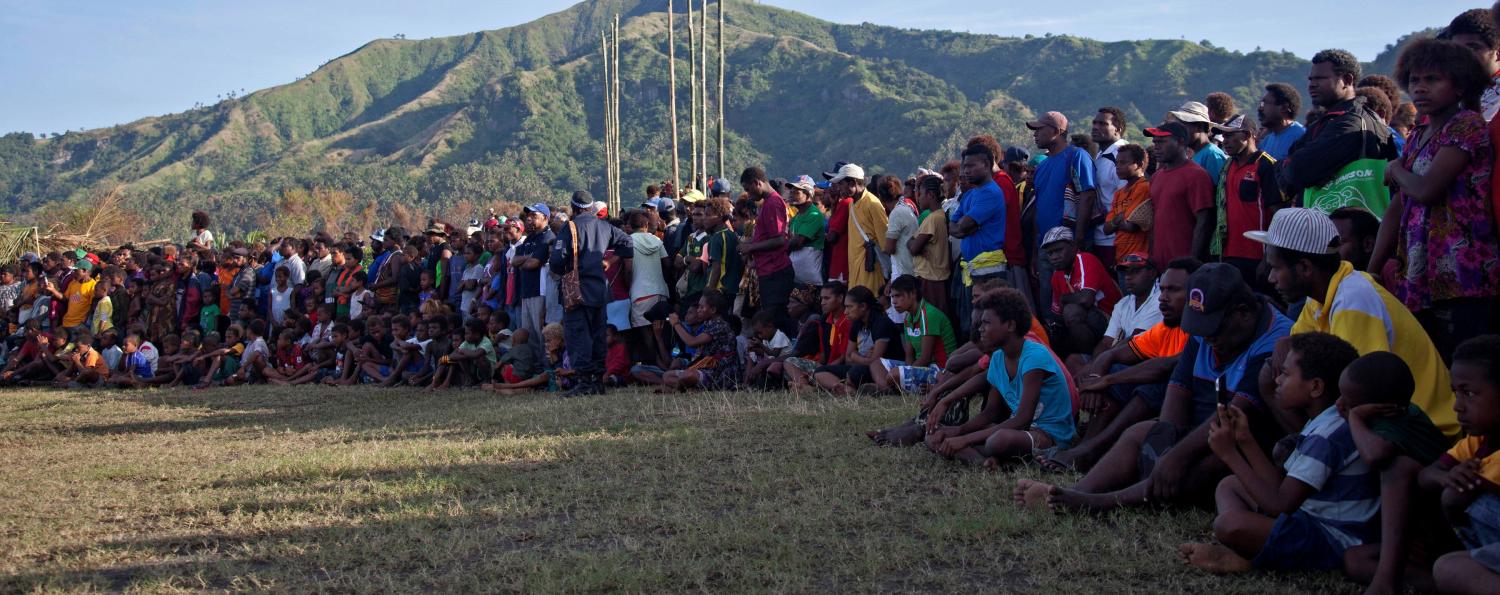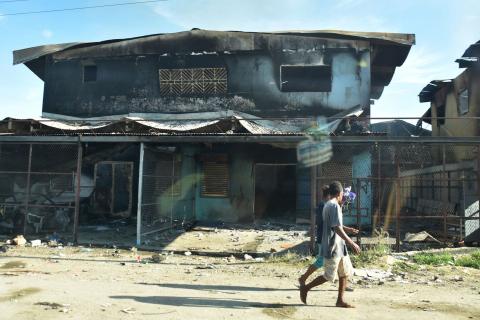The PNG national elections are upon us, and for a brief moment the attention of regional and global media will be focused on this vibrant and costly celebration of democracy. The issues leading into the elections have been well documented by myself and others. Bal Kama's recent piece for The Interpreter is one of the best yet.
PNG's elections are famous for their diversity, high cost, logistical complexity, and security issues. They are a true marvel of the democratic process. The elections are also famous because they are incredibly unpredictable. There are no polls in PNG, and with 44 political parties and more than 3000 candidates contesting 111 seats, a prospective pollster wouldn't know where to begin. On top of that, PNG elections routinely boot out half of the country's sitting MPs.
It takes a brave or foolish person to predict the outcome of a PNG election. Here goes nothing.
How it could go right for Peter O'Neill
Prime Minister O'Neill has significant advantages coming into the election. He has marginalised the opposition to only 18 seats, and his own party (the People's National Congress) at last count held 54 seats in parliament, almost enough for a majority in its own right. O'Neill will be the first PNG Prime Minister to make it through a full term, and over that time he has proven to be a master at using the levers of politics and funding to maintain a broad coalition government.
Given his considerable advantages leading into the election, there is a very real chance that his party will succeed in being invited to form government. If O'Neill becomes the first declared winner in the election he can quickly move on to the real job of coalition-building. A low turnover of MPs (highly possible, given how subdued cash campaigning has been this year) will benefit O'Neill, as he can bring back more of his key allies and members of his own party. As his base builds he can continue to marginalise key opponents, and quickly get within striking distance of the magic number of 56, which would make a second term with O'Neill at the helm a foregone conclusion.
How it could go wrong
Prime Minister O'Neill is not as invincible as he was when commodity prices were soaring in 2014. The people of PNG have been disappointed on a number of fronts, and the dangerous state of the economy is impacting all parts of the country. There has been civil unrest in urban areas, and the outstanding corruption cases against the Prime Minister have tarnished his reputation. A 'coalition in opposition' has already formed hoping to grab the reigns from O'Neill, which includes major names such as Don Polye, Gary Juffa, Ben Micah, Patrick Pruatch, Kerenga Kua and former prime ministers Michael Somare, Julius Chan and Mekere Morauta. O'Neill has certainly been battered, but he is nowhere near beaten. There is, however, an opening for change that one might not have thought possible even a year ago.
The wheels could start to fall off for O'Neill back in his home electorate. While O'Neill is confident he will win quickly, an insurrection is being led against him by one-time protégé Stanley Liria, who has campaigned heavily. If Liria splits the vote in the Ialibu-Pangia seat then an outcome may take some time, distracting O'Neill from the task of building a coalition. If the turnover of MPs is unprecedentedly high, as it was in 2002 when 75% of MPs were booted out, then existing allegiances and party ties will count for far less. O'Neill nearly doubled his party membership from 27 MPs in 2012 to 54 over five years, but opportunism will pose a difficult test of that loyalty.
A lot will need to go right for this scenario to play out, and even if O'Neill is hamstrung in building his own coalition, it is still unclear which leader will take charge of the 'coalition in opposition'.
What will happen?
With all the variables at play this is an educated guess, but my money is on O'Neill. Say what you will about his policy track record, he is clearly a master at the game of politics. Whoever comes into power, however, will have urgent challenges to address – first and foremost, the dire state of the economy. As the count takes place and coalition negotiations drag on, the stakes for the new government will only get higher.

